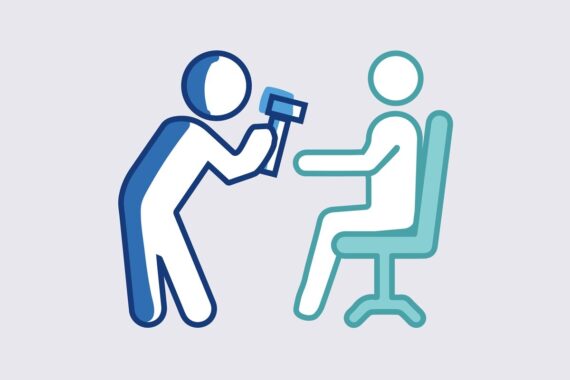GP with extended role (GPwER) – all you need to know

Dr Anna Trigell is a GP with an extended role in dermatology. She talks to us about the necessary qualifications, pay and routes into specialised therapy areas
How do I get into the role (including necessary qualifications)?
It depends on which extended roles you are looking to go into. For dermatology, there’s a defined pathway that has been put together by the RCGP and the British Association of Dermatologists for accreditation. It’s quite intense with a period of clinical supervision needed with formal assessment processes and there is an associated cost to this.
Once you are accredited, you need to think about who is going to employ you – if you are an autonomous accredited practitioner, you can approach hospitals for employment opportunities. There are also the options of talking to your ICB about doing a local clinic in the community or considering working privately.
How much does it pay?
You are a specialist, so in theory it should be a bit more than a GP would be getting for a locum type session. However, it is up to the local ICBs as to what they are willing to pay. Hospital pay traditionally is poor but again will depend on your area. There is no defined pay scale.
How much time do I need to devote to it?
When I was in partnership, I did one dermatology session a week. In the last four years I gave up partnership and concentrated more on dermatology and a portfolio career. Currently, I do four sessions a week.
I think a minimum of one a week is probably enough to embed your knowledge and keep your skills up – especially as you need to fit it on top of the minimum required 40 sessions a year of general practice.
What’s good about the job?
With dermatology you can make a huge difference to patients often with minimal intervention. If you can diagnose their condition – even if you cannot fix it, you can give it a name, help them manage it, and hopefully reassure them that it isn’t skin cancer (or arrange further management if it is). I love the fact that within a 15-minute consultation I often have very happy patients leaving the room with a diagnosis and a plan.
Interspersed with the common conditions, there are often very interesting cases that take some clinical detective work to work out what is going on. A lot of the tests – eg. biopsies, skin scrapings and swabs – can be done within the community setting and it is only a small number of patients that need to have the hospital involved.
What’s bad about the job?
There is very little I don’t like about it. The only advice I would give is that you need to have a passion for dermatology. I think it is sometimes seen as a way of achieving a good working life balance, which it is, but you really need to love it and want to get deep down and hands on with people’s skin, literally warts and all!
Advice from the MDDUS
Whether you’re specialising in dermatology, psychiatry, or another area, we can help ensure your extended role is fully protected.
Click here to see all the other portfolio careers in this series
Portfolio careers
What is the right portfolio career for you?












